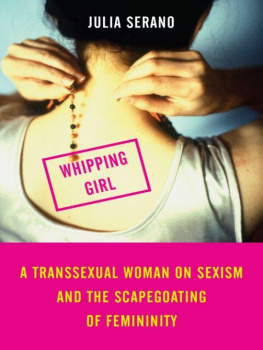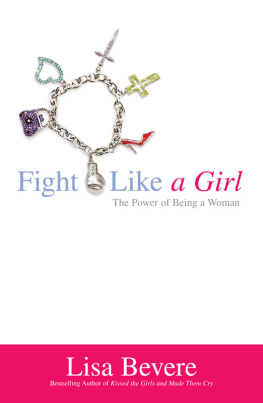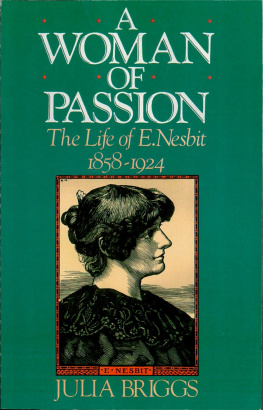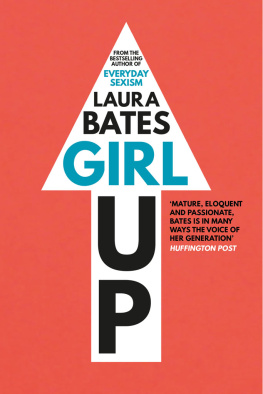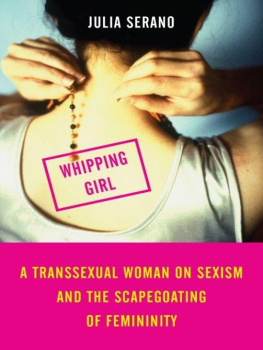Table of Contents
for Dani
who (once again) provided me with
invaluable feedback, inspiration, support, and love
and in loving memory of Coby
our jenday conure
who used to sit contentedly on my shoulder
while I would write
she was one of the sweetest,
quirkiest, and best friends
that I have ever had
she is dearly missed
love you, Coby. love you!
Introduction
If I didnt define myself for myself, I would be crunched into other peoples fantasies for me and eaten alive.
Audre Lorde
WHEN I FIRST TOLD people that I was working on a book based on my experiences and perspectives as a transsexual woman, many of them immediately assumed that I was writing an autobiography (rather than a political or historical account, a work of fiction, or a collection of personal essays). Perhaps they imagined that I would write one of those confessional tell-alls that non-trans people seem to constantly want to hear from transsexual women, one that begins with my insistence that I have always been a woman trapped inside a mans body; one that distorts my desire to be female into a quest for feminine pursuits; one that explains the ins and outs of sex reassignment surgery and hormones in gory detail; one that completely avoids discussions about what it is like to be treated as a woman and how that compares to how I was treated as a male; one that whitewashes away all of the prejudices I face for being transsexual; a book that ends not with me becoming an outspoken trans activist or feminist, but with the consummation of my womanhood in the form of my first sexual experience with a man. I am not surprised that many would assume that I was simply writing yet another variation of this archetype. Until very recently, this was the only sort of story that non-trans publishers and media producers would allow transsexual women to tell. And while I respect any trans woman who has been brave enough to share her story with the world, the medias narrow focus on the most palatable or sensationalistic transsexual storylines has resulted in making invisible the vast diversity of perspectives and experiences that exist among trans women. Further, this has dumbed down the intricate and difficult relationships many of us have with our own genders and physical bodies. It has also erased the difficulty we face in dealing with the gender stereotypes that other people project onto us because we are women and because we are transsexuals.
Other people who know me from my work as a transgender activist and trans-focused performance poet might have assumed that I was working on a transgender revolution book: one similar to those books by Kate Bornstein, Leslie Feinberg, and Riki Wilchins that influenced me so much when I was first coming out; one that challenges readers to look beyond the gender binary; one that encourages all transgender people (whether they are transsexuals, crossdressers, genderqueers, drag artists, etc.) to recognize that we are all in the same boat, all victims at the hands of the same rigid cultural gender norms. While I do believe that all transgender people have a stake in the same political fight against those who fear and dismiss gender diversity and difference in all of its wondrous forms, I do not believe that we are discriminated against in the same ways and for the exact same reasons. I have found that the ways people reacted to me back when I identified as a mostly closeted male crossdresser, or as a bigendered queer boy, were very different from one another and yet again different from the way people react to me now that I am an out transsexual woman. The focus on transgender as a one-size-fits-all category for those who transgress binary gender norms has inadvertently erased the struggles faced by those of us who lie at the intersection of multiple forms of gender-based prejudice. And while I agree with many of the points shattering-the-gender-binary-themed books regularly make, I have come to the realization that they only tell part of the story.
The idea that all anti-trans discrimination arises from the fact that, as transgender people, we transgress binary gender norms does not resonate completely with my personal experiences. As a somewhat eccentric kid, I was given plenty of leeway to opt out of boys activities and to cultivate an androgynous appearance and persona. I was sometimes teased for being different, for being an atypical or unmasculine boy, but it was nothing compared to venom that was reserved for those boys who acted downright feminine. And now, as an out transsexual woman, I find that those who wish to ridicule or dismiss me do not simply take me to task for the fact that I fail to conform to gender normsinstead, more often than not, they mock my femininity. From the perspective of an occasional gender bender or someone on the female-to-male spectrum, it might seem like binary gender norms are at the core of all anti-trans discrimination. But most of the anti-trans sentiment that I have had to deal with as a transsexual woman is probably better described as misogyny.
The fact that transsexual women are often singled out to bear the brunt of our cultures fascination with and demonization of transgenderism is a subject that has been ripe for feminist critique for about half a century now. Unfortunately, many feminists have been extraordinarily apathetic or antagonistic to the experiences and perspectives of transsexual women. In fact, the few non-trans feminists who have written about us in the past have usually based their theses upon the assumption that we are really men (not women), and that our physical transitions to female and our expressions of femininity represent an appropriation of female culture, symbolism, and bodies. Besides being disrespectful of the fact that we identify, live, and are treated by the world as women, such flawed approaches have overlooked an important opportunity to examine far more relevant issues: the ways in which traditional sexism shapes popular assumptions about transsexual women and why so many people in our society feel threatened by the existence of men who choose to become women.
The intent of this book is to debunk many of the myths and misconceptions that people have about transsexual women, as well as gender in general. By turning the tables on the rest of the world and examining why so many different facets of our society have set out to dehumanize trans women, I hope to show that we are ridiculed and dismissed not merely because we transgress binary gender norms, as many transgender activists and gender theorists have proposed, but rather because we choose to be women rather than men. The fact that we identify and live as women, despite being born male and having inherited male privilege, challenges those in our society who wish to glorify maleness and masculinity, as well as those who frame the struggles faced by other women and queers solely in terms of male and heterosexual privilege.
Examining the society-wide disdain for trans women also brings to light an important yet often overlooked aspect of traditional sexism: that it targets people not only for their femaleness, but also for their expressions of femininity. Today, while it is generally considered to be offensive or prejudiced to openly discriminate against someone for being female, discriminating against someones femininity is still considered fair game. The idea that masculinity is strong, tough, and natural while femininity is weak, vulnerable, and artificial continues to proliferate even among people who believe that women and men are equals. And in a world where femininity is so regularly dismissed, perhaps no form of gendered expression is considered more artificial and more suspect than male and transgender expressions of femininity.


